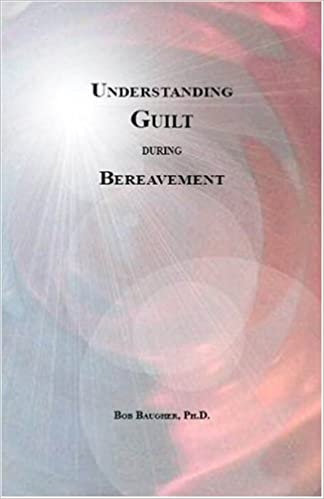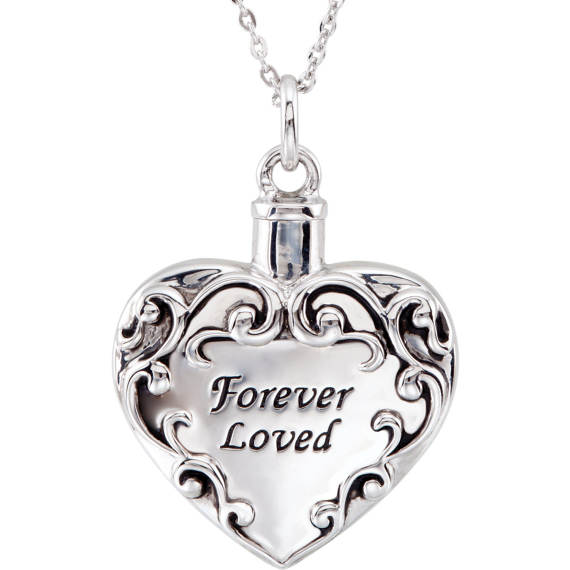Grief and Guilt - How to Stop Blaming Yourself
Grief and guilt often go together and there can be several different causes for that emotion, explains Elizabeth Postle, healthcare professional for 45 years and author of this site.
One of the problems a lot of the bereaved feel is guilt.
There are many reasons for this which we cover on this page. It could be survivor guilt, or what happened before someone died. It might be because you weren't there or even in these pandemic times because you couldn't hold a funeral. You might have had a row before someone died or failed to say something or you may have been estranged. If you were a caregiver you might feel you could have done more. Even children can feel guilt when someone dies as we explore below.
Whatever it is, we hope that this page will help you to begin to forgive yourself. You deserve to be forgiven. We all do.

Survivor Guilt
You might be asking yourself: "Why am I alive when my loved one, family or friends are not?" This 'survivor guilt' is particularly prevalent after a car accident or in returning servicemen.
People who are left behind often feel that they are not as worthy as those who died around them. It is also common when a young member of the family has died. We want to be able to swap places and feel that we should not be alive and certainly not enjoying ourselves.
Guilt that We Are Still Grieving
Often we may feel guilt that we are not coping with our grief as well as we should, especially when well-meaning friends and family think we should be over it by now.
We might feel guilt that our grief is excessive and that we are being judged for our grief. But no-one else knows or understands what you feel. Your grief is yours alone and is completely valid.
One of the characters in 'The Seven Sisters' by Lucinda Riley feels guilty when she is crying for her father who has just died. She realises she is crying for herself and not for him, for the pain he suffered or for a life cut short. She feels shame for indulging in self-pity.
Her sister comforts her saying:
"Try to understand that grief is all about the people left behind. About us. We’re all grieving for ourselves and our loss. And you really mustn’t feel any guilt about it."
The sister is right. It is important to acknowledge and feel our emotions, not to hide them away. Western society is to blame for much of this attitude. We have hidden grief away and don't want to look at it. Many other cultures are much more in touch with grief and how to express it.
Crying is normal, and feeling sad because we miss someone is normal.
Guilt Over How the Death Happened
Sometimes you might feel guilt because you believe you somehow caused the death, even if it was unintentional or an accident. You might feel that you could have done more by asking for a second opinion in the hospital, or caring for a relative at home.
Sidebar from Lesley (editor of this website):
Recently I was watching a popular TV show and a guy was expressing how guilty he felt that he was asleep when his Mum died. I wanted to shout at the TV - "But you were there! You had been caring for her at home night and day. She knew you cared."
It actually brought tears to my eyes and connected me to my own guilt and grief that I was not able to be there when my partner died. However much I tell myself that I couldn't have done it. He was too sick and I was not physically or mentally able to cope with caring for him at home, I still feel that guilt. It takes a lot of work to accept our limitations and forgive ourselves, but that is what we need to try and do.
Our pages on Self-Care are a good place to start loving ourselves again.
Guilt About a Row Before Death
Many bereaved people feel anguish due to the fact that they had had a row with their spouse or child or parent before they died. This is a natural emotion.
Bereavement researcher Wendy Lichtenthal calls this 'unfinished business' and it can make grief much harder. She talks about how writing a journal or a letter to a loved one can help in overcoming the regret of this type of grief here.
The main thing is to forgive yourself. All family members have upsets from time to time. Had you been able to make your peace beforehand it would have passed over as a minor spat. All forgotten. Be honest with yourself that this argument would have been over and harmony restored had you been given time.
Forgive yourself but forgive your loved one too. Because of the circumstances things get built up and out of all proportion to what actually occurred. It’s up to you to forgive and forget now. Move on. Remember the happy times and learn to laugh again. Talk about the good times. Don’t spoil the memory of the happy years you spent together because of one argument.
Caregiver Grief and Guilt
Guilt can take up so much negative time after a death or when a loved one has to go into long term care for whatever reason. We can only do what is best for ourselves and the family at any given time. Hindsight brings up many ‘if only’s’ or ‘could I have done things differently?’
Many carers cope for many years, do their best and then feel so much guilt as they feel they could have done more. This demonstrates unrealistic expectations of their capability, no one is superman or woman.
We should only worry about things we can change and these afterthoughts do not solve anything. Sometimes we can project that guilt onto others and blame them too for things we feel they could have done better.
Many people cannot cope with the care role at all, You should be proud of what you achieved.
The carer needs time for herself/ himself too. They tend to forget that they are entitled to enjoy some spare time. There is a huge sense of loss when the full time care role comes to an end. There is too much time for regrets, grief and these negative thoughts of ‘was enough done for my loved one?’
Forgive yourself for any imagined lack of care. We are all human, we get
tired and cross at times, and are probably less patient than usual at
times. This does not mean you failed in your care, only that you cared
enough to carry on when you were weary.
Give yourself time to grieve and find a lifestyle for yourself again. It is time for some enjoyment again after all your care of others.
Read more about coping with caregiver grief after the death of your loved one.
Why Children Feel Guilty When Someone Dies
Many children imagine that for some reason they are responsible for the death. That if they had behaved better or done something differently it wouldn't have happened. They try to make up explanations for what has happened, and often end up feeling guilty. And frequently no-one will know that they feel like this.
It is important to communicate clearly
with children so that they have a clear understanding that it wasn't
their fault.
See my pages on Children and Grief for more information.
Forgive Yourself
- Feeling guilty doesn't help anyone
- Say to yourself - I did my best, it was not my fault
- You would forgive others, so why not forgive yourself?
Accept that more often than not there is no fault anywhere and there is nothing you could have done to change events. This is just going to make you feel worse.
Accept what has happened and move on with your life. It is not helpful to blame yourself or anyone else.
Life happens and is often beyond any of our control.
Write an Apology Letter
Some people find it helps if they write a letter to a loved one they feel they might have wronged in some way before they died. You don't have to know what to say. Just start writing. Even if you just put, "I'm sorry, I'm sorry, I'm sorry" a hundred times down the page, it can be very soothing and help you to move on. Throw away the paper, or burn it too if it helps.
Another way to let guilt go is to write a response from the loved one to you. Imagine what they would say to you when they received your apology letter. Most of the time, we are beating ourselves up for no reason.
Read more about apology letters here.
Don't Feel Guilt for Moving on from Grief
Guilt can be caused by worrying about what other people might be thinking. And it is true that some people might think that you shouldn't be happy, that you shouldn't be re-marrying so soon, or getting on with your life.
But that is their problem.
You know you loved the deceased one. You know that you have grieved. And you know that life is precious and it is your time now, to make the most of the life you have left.
I have always felt that we grow stronger having had a loving relationship. It helps us to live a useful life, not only for ourselves but for them too. Your loved ones would not want to know that you were continuing with an unhappy lifestyle.
Yes, we may feel guilt as a normal emotion of grief but let it flow away with the waves like the other negative feelings.
Life is a precious gift however long we have, let us try to have a positive purpose each day.
Related Read:
Understanding Guilt During Bereavement by Dr Bob Baugher
This excellent book explains all the different types of guilt you may feel after a bereavement and what you can do to feel better.
Related Pages:
7 Warning Signs You Have Caregiver Grief
Best Books on Dealing with Grief
- Grief and Sympathy Home
- Dealing with Grief
- Grief and Guilt
Where to get help:
Have You Considered One-on-One Online Grief Counseling?
Get Expert and Effective Help in the Comfort of Your Own Home
The following information about online counseling is sponsored by 'Betterhelp' but all the opinions are our own. To be upfront, we do receive a commission when you sign up with 'Betterhelp', but we have total faith in their expertise and would never recommend something we didn't completely approve.
Do you feel alone and sad with no support and no idea how to move forward? It can be tough when you are stuck in grief to find the motivation to get the most out of your precious life.
Online counseling can help by giving you that support so you don't feel so alone. You can have someone to talk to anytime you like, a kind and understanding person who will help you to find meaning in life again, to treasure the memories of your loved one without being overwhelmed and to enjoy your activities, family and friends again.
- Simply fill out the online questionnaire and you will be assigned the expert grief counselor most suitable for you. It only takes a few minutes and you don't even have to use your name.
- Pay an affordable FLAT FEE FOR UNLIMITED SESSIONS.
- Contact your counselor whenever you like by chat, messaging, video or phone.
- You can change counselor at any time if you wish.
- Click here to find out more and get started immediately.
- Or read more about how online counseling works here.
Sales from our pages result in a small commission to us which helps us to continue our work supporting the grieving.
Hypnosis for Grief - 10 Ways It Can Help You
Try a gentle hypnotherapy track to relax the mind. Learn how self-hypnosis can help you cope with grief at any time of the day or night.

For Remembrance:
Sales from our pages result in a small commission to us which helps us to continue our work supporting the grieving.
Memorial Jewelry to Honour a Loved One
Check out our lovely range of memorial jewelry for any lost loved one. Pendants, necklaces, rings or bracelets, we have them all in all kinds of styles. Choose for yourself or buy as a sympathy gift.
Create an Online Memorial Website
Honour your loved one with their own memorial website. Share photos, videos, memories and more with your family and friends in a permanent online website. Free for basic plan with no ads.









